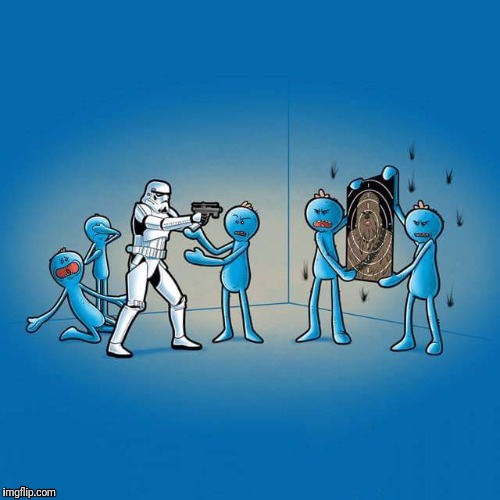Post by thebin on Aug 5, 2008 9:34:09 GMT -5
Let us never forget what a fetid, self-righteous, little pig of a man John Feinstein is...just one of the MANY people who were ready to throw three innocent young men to the public lynch mob for the crime of being white male athletes at an elite university but who haven't found any time to apologize for their disturbing rush to judgement. This blog is maintained by history professor named KC Johnson. Please don't miss the end, when the three players were TOTALLY EXONERATED and it wasn't enough to sway Feinstein at all. It's the peice de resistance and it's been highlighted for your pleasure.
durhamwonderland.blogspot.com/2007/06/john-feinstein-and-unbearable-lightness.html
"Take the most famous sportswriter to comment on the case, John Feinstein—someone who, in a never-ending cascade of increasingly panned books and appearances on radio talk shows, has become one of those brands you can’t avoid no matter how much might want to.
On March 30, 2006, Feinstein admitted to Tony Kornheiser that “I don’t know that I know any more than you. I have not been talking to my sources and resources in Durham.” But he offered his advice anyway: the Duke administration should cancel the lacrosse season immediately and revoke the scholarships of every lacrosse player who would not speak with authorities. He imagined himself in the role of the Duke president, lecturing the players:
They can just say, “We know you had this party. We know it got out of hand. None of you is man enough to come forward and say what happened. You were witnesses to a crime. We’re shutting down the program and you’re all gone.”
Prompted by Kornheiser, Feinstein conceded that his negative characterization of the players was not a result of their drinking or the captains inviting strippers. “That happens—but that happens on every school in America,” Kornheiser noted. And Feinstein conceded, “To some degree, you’re right. Unfortunately it does.”
So what justified Feinstein’s condemnation of the players' character? The fact that none of the players had gone to police and incriminated their teammates for the “crime.”
"You know, I don’t want to hear any ifs, and, or buts. These kids have acted disgracefully, just by the fact that not one of them—I don’t want to hear about the code, among buddies and among teams. A crime was committed. There were witnesses to the crime. They need to come forward and say what they saw . . .
They won’t, and that’s why I’m saying the hell with them—strip their scholarships."
Since Feinstein had elected to speak without determining the facts, he didn’t know (as had been reported two days before his interview) that the three captains had “come forward and said what happened,” and had even told police they would take a polygraph test. Moreover, as the Raleigh News&Observer has recently revealed, by the day of Feinstein’s interview, D.A. Mike Nifong had told two defense attorneys that he would speak to the players only on condition that they confess, or reveal which of their teammates committed the “crime.”
Feinstein, then, wanted the university to give its students an ultimatum: falsely implicate their teammates in a crime that never occurred or lose the financial wherewithal to attend college.
Much like the Duke faculty who condemned the lacrosse players to advance the professors’ ideological and curricular agendas, Feinstein had a personal angle to the case: he wanted to settle a score with people at Duke. In 1998, he had lobbied aggressively for Duke to name a longtime friend, Tom Mickle, as its new athletic director. The search committee rejected his advice and selected Joe Alleva. Those at Duke with whom I have spoken—some strong defenders of how the university handled the lacrosse case, others who were deeply disappointed by the school’s tepid response—were unanimous on one point: Alleva was easily superior to Feinstein’s candidate, who was merely one of many people considered for the job. But Feinstein took rejection badly. Had Duke hired his preferred choice for A.D., he sniffed a column last May, “this never would have gotten to this point.”
Blinded by this personal animus, Feinstein managed to get virtually every key element about the lacrosse case wrong:
The only “crime” committed was underage drinking, in which the lacrosse players joined three-quarters of the nation’s college students and which both he and Kornheiser admitted last March was nothing unusual on college campuses.
As Feinstein described the lacrosse team as “immature, idiotic, [and] out-of-control,” a faculty committee’s investigation showed that the players—like many students at Duke—drank too much, but otherwise were unusually good students, with strong records of community service and treating staff well, and no record of sexist or racist behavior.
Despite his insinuation that the “rich, privileged, lawyered-up and white” lacrosse players had engaged in racist acts, we now know that one, and only one, of the team’s 47 players responded to a racial taunt from the second dancer, as the party was breaking up, with a racial slur of his own.
After the dismissal of charges and Duke’s run to the championship game, did Feinstein acknowledge his own rush to judgment? No. Explain or understand the facts of case? No. Admit that personal biases clouded his interpretation? No. Instead, in radio interviews and several newspaper columns over the past month, he lectured morality from some lofty moral high ground known only to him.
Discussing the three falsely accused players in an interview a few weeks ago, he asserted,
"I don’t think I’ve been proven wrong, because . . . I said, I think they’re probably guilty of everything but rape."
He offered no evidence to substantiate this sweeping attack on the character of three innocent people.
durhamwonderland.blogspot.com/2007/06/john-feinstein-and-unbearable-lightness.html
"Take the most famous sportswriter to comment on the case, John Feinstein—someone who, in a never-ending cascade of increasingly panned books and appearances on radio talk shows, has become one of those brands you can’t avoid no matter how much might want to.
On March 30, 2006, Feinstein admitted to Tony Kornheiser that “I don’t know that I know any more than you. I have not been talking to my sources and resources in Durham.” But he offered his advice anyway: the Duke administration should cancel the lacrosse season immediately and revoke the scholarships of every lacrosse player who would not speak with authorities. He imagined himself in the role of the Duke president, lecturing the players:
They can just say, “We know you had this party. We know it got out of hand. None of you is man enough to come forward and say what happened. You were witnesses to a crime. We’re shutting down the program and you’re all gone.”
Prompted by Kornheiser, Feinstein conceded that his negative characterization of the players was not a result of their drinking or the captains inviting strippers. “That happens—but that happens on every school in America,” Kornheiser noted. And Feinstein conceded, “To some degree, you’re right. Unfortunately it does.”
So what justified Feinstein’s condemnation of the players' character? The fact that none of the players had gone to police and incriminated their teammates for the “crime.”
"You know, I don’t want to hear any ifs, and, or buts. These kids have acted disgracefully, just by the fact that not one of them—I don’t want to hear about the code, among buddies and among teams. A crime was committed. There were witnesses to the crime. They need to come forward and say what they saw . . .
They won’t, and that’s why I’m saying the hell with them—strip their scholarships."
Since Feinstein had elected to speak without determining the facts, he didn’t know (as had been reported two days before his interview) that the three captains had “come forward and said what happened,” and had even told police they would take a polygraph test. Moreover, as the Raleigh News&Observer has recently revealed, by the day of Feinstein’s interview, D.A. Mike Nifong had told two defense attorneys that he would speak to the players only on condition that they confess, or reveal which of their teammates committed the “crime.”
Feinstein, then, wanted the university to give its students an ultimatum: falsely implicate their teammates in a crime that never occurred or lose the financial wherewithal to attend college.
Much like the Duke faculty who condemned the lacrosse players to advance the professors’ ideological and curricular agendas, Feinstein had a personal angle to the case: he wanted to settle a score with people at Duke. In 1998, he had lobbied aggressively for Duke to name a longtime friend, Tom Mickle, as its new athletic director. The search committee rejected his advice and selected Joe Alleva. Those at Duke with whom I have spoken—some strong defenders of how the university handled the lacrosse case, others who were deeply disappointed by the school’s tepid response—were unanimous on one point: Alleva was easily superior to Feinstein’s candidate, who was merely one of many people considered for the job. But Feinstein took rejection badly. Had Duke hired his preferred choice for A.D., he sniffed a column last May, “this never would have gotten to this point.”
Blinded by this personal animus, Feinstein managed to get virtually every key element about the lacrosse case wrong:
The only “crime” committed was underage drinking, in which the lacrosse players joined three-quarters of the nation’s college students and which both he and Kornheiser admitted last March was nothing unusual on college campuses.
As Feinstein described the lacrosse team as “immature, idiotic, [and] out-of-control,” a faculty committee’s investigation showed that the players—like many students at Duke—drank too much, but otherwise were unusually good students, with strong records of community service and treating staff well, and no record of sexist or racist behavior.
Despite his insinuation that the “rich, privileged, lawyered-up and white” lacrosse players had engaged in racist acts, we now know that one, and only one, of the team’s 47 players responded to a racial taunt from the second dancer, as the party was breaking up, with a racial slur of his own.
After the dismissal of charges and Duke’s run to the championship game, did Feinstein acknowledge his own rush to judgment? No. Explain or understand the facts of case? No. Admit that personal biases clouded his interpretation? No. Instead, in radio interviews and several newspaper columns over the past month, he lectured morality from some lofty moral high ground known only to him.
Discussing the three falsely accused players in an interview a few weeks ago, he asserted,
"I don’t think I’ve been proven wrong, because . . . I said, I think they’re probably guilty of everything but rape."
He offered no evidence to substantiate this sweeping attack on the character of three innocent people.






